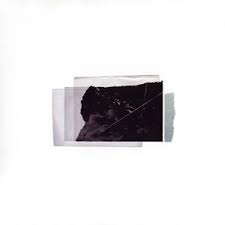The continual crossover between the wings of academically trained electronic experimentalism and what can generally still be called "indie music" – at least in the sense of independent labels, if not jangly whatsits troubling the charts – has long been in evidence with Kranky, thanks to performers like Tim Hecker and Gregg Kowalsky among many others. Christopher Bissonnette’s third release for the label, Essays In Idleness, continues the association, with a series of pieces composed on a homemade analog synth. With Bissonnette having over a decade’s worth of formally recorded work in a variety of collaborative and solo contexts, Essays is also a chance to hear a performer not merely comfortable in an idiom but continuing to test it.
It does Bissonnette a disservice to call his work cerebral – here it’s as tactile, as he’s said himself, as one could want, audible in the way ‘A Deplorable Corrupt’ ebbs and flows with layered noise and serene keyboards interacting, a series of what almost sounds like dying amplifiers recording the sound of equally doomed machines. It’s somewhere between a ritual and a gallery showing, if not both. These themes of calmness and chaos as interaction drive much of the album, aiming to move beyond simple descriptions of sounding like a "drone" when there can be drones, of multiple sorts and strange kinds. Compared to where he was with his last, more spacious effort for Kranky In Between Words – released seven years back – Bissonnette has embraced an angrier, much more unstable aesthetic.
Calling one track ‘Uniformity Os Undesirable’ both works as weirdly threatening command and as motto for the effort; though a mood is established throughout the album nothing quite resembles anything else. If new age is indeed back to some degree as functional description of a sound explored by many, this is a new and potentially dysfunctional machine age at heart, one where the clear feeling of feedback arcs as on ‘Delusions’ suggests the properties of Fennesz in one sense but are played with the kind of looming intensity that underscored original pioneers like Tangerine Dream and Popul Vuh on the other, a slow motion supernova.
‘Wasting A Little Time’ almost comes as a kind of concluding uplift to end the collection, tones bubbling like gongs floating in space, but Essays In Idleness is neither the product of someone resting on their laurels nor simply designed to offer an aural background for contemplation. You can if you want to let it, but it’s not an easy way to drift away.


